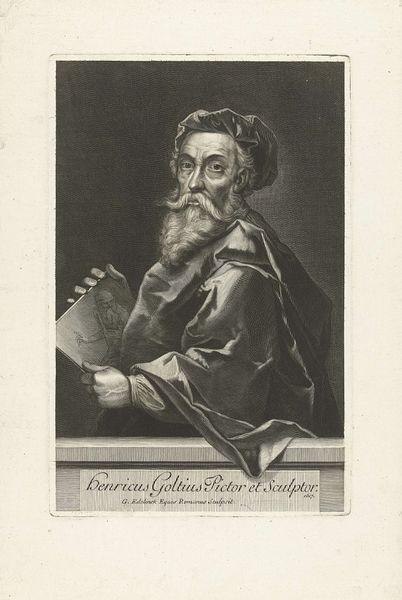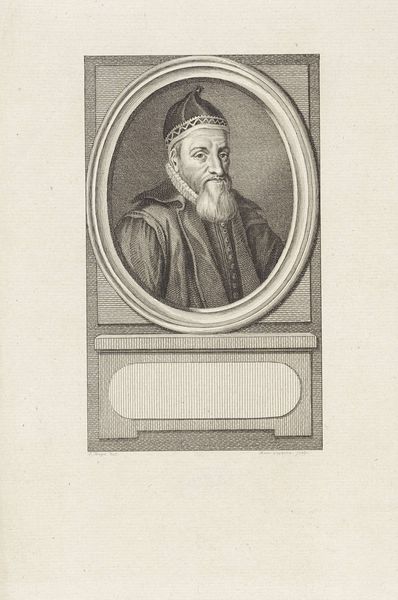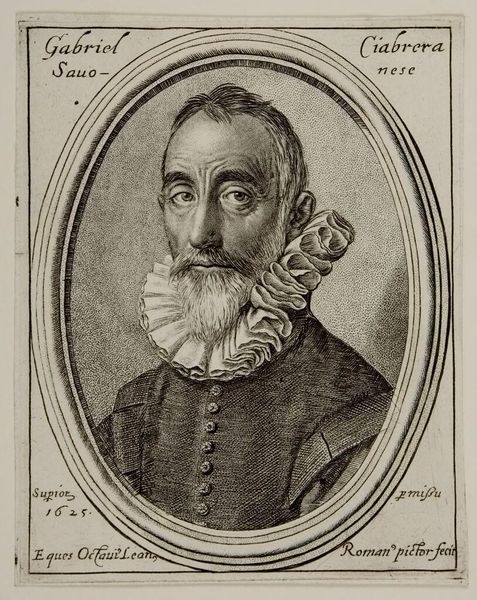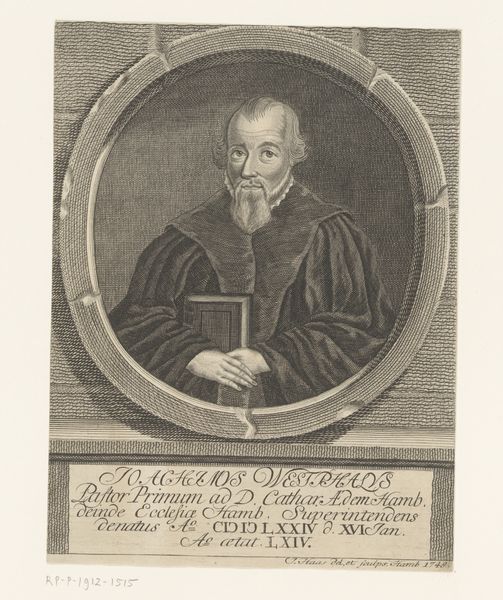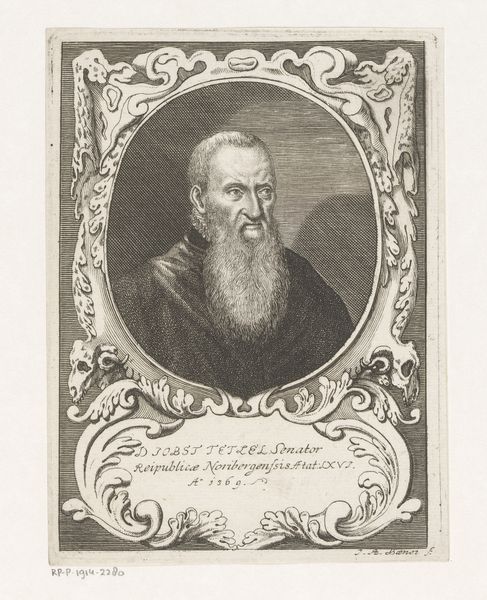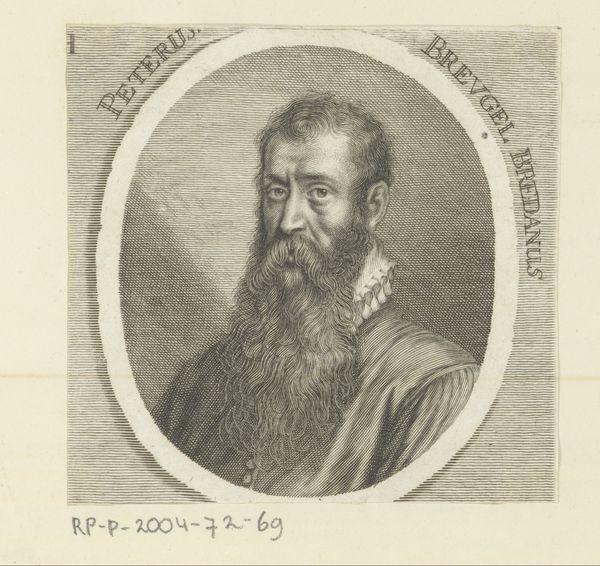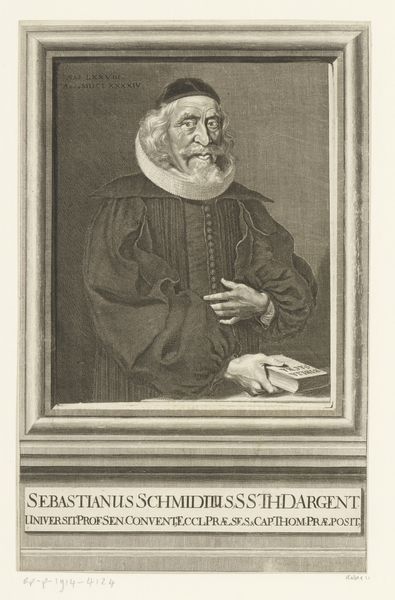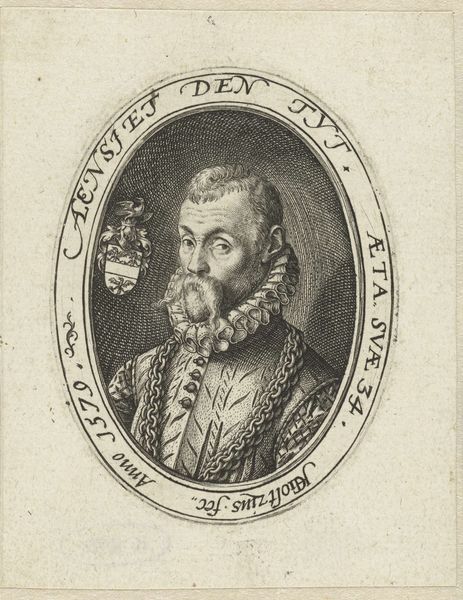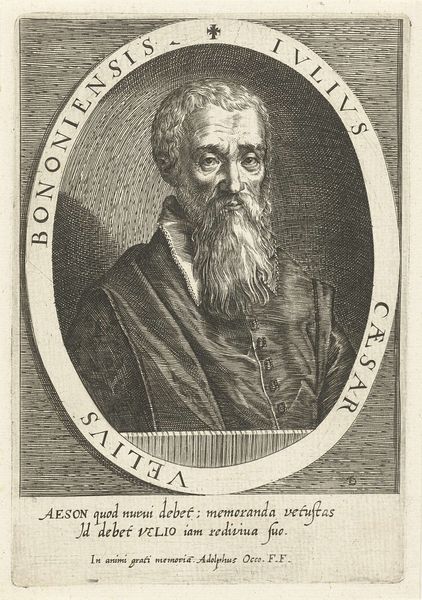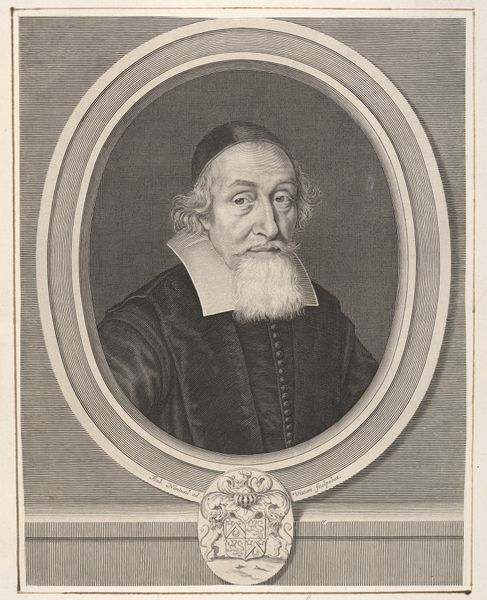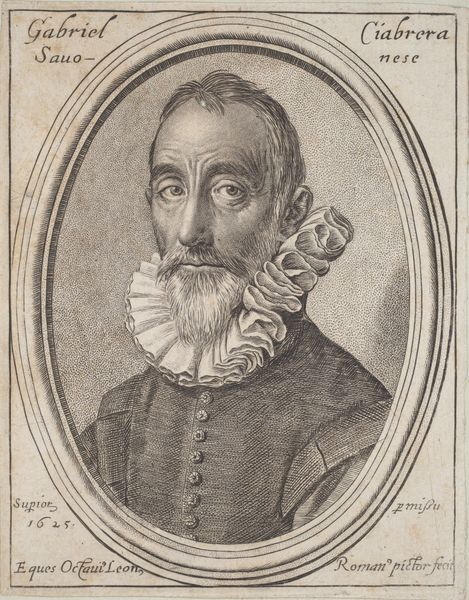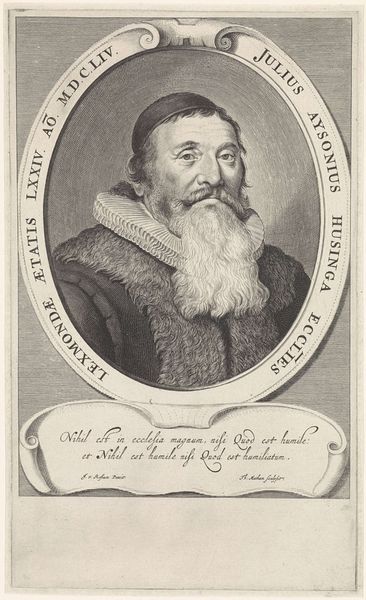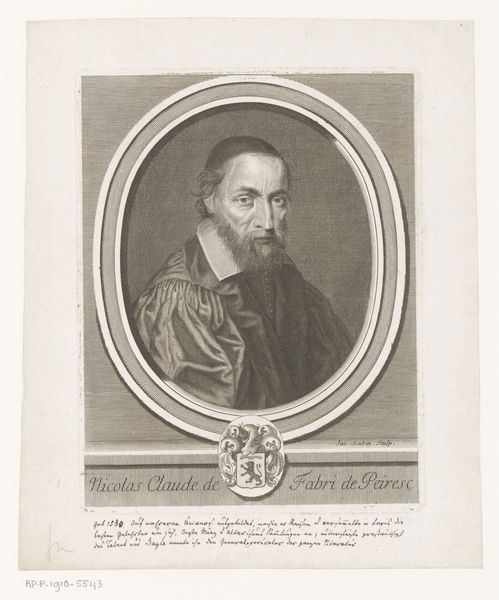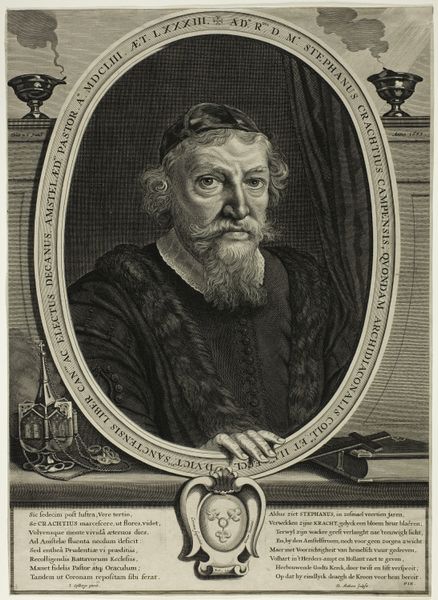
print, graphite, engraving
#
portrait
#
baroque
# print
#
old engraving style
#
historical photography
#
pencil drawing
#
line
#
graphite
#
graphite
#
engraving
Dimensions: height 244 mm, width 187 mm
Copyright: Rijks Museum: Open Domain
This portrait of Guillaume du Vair was made by Gérard Edelinck, who was born in 1640, and it's an engraving, meaning the image is incised into a flat surface and then printed. Look closely and you can see how the density of lines creates shading and form, bringing the figure to life. Edelinck would have used a tool called a burin to make the cuts, and because it's a subtractive process, it requires immense skill and planning. The ink settles into these lines, transferring the image onto paper when printed. Engraving was a key method for disseminating images and information in the early modern period. It speaks to a growing culture of documentation and dissemination. The labor-intensive nature of engraving highlights the value placed on craft and the importance of skilled artisans in image-making before photography. It collapses the distinction between commercial reproduction and high art.
Comments
No comments
Be the first to comment and join the conversation on the ultimate creative platform.
